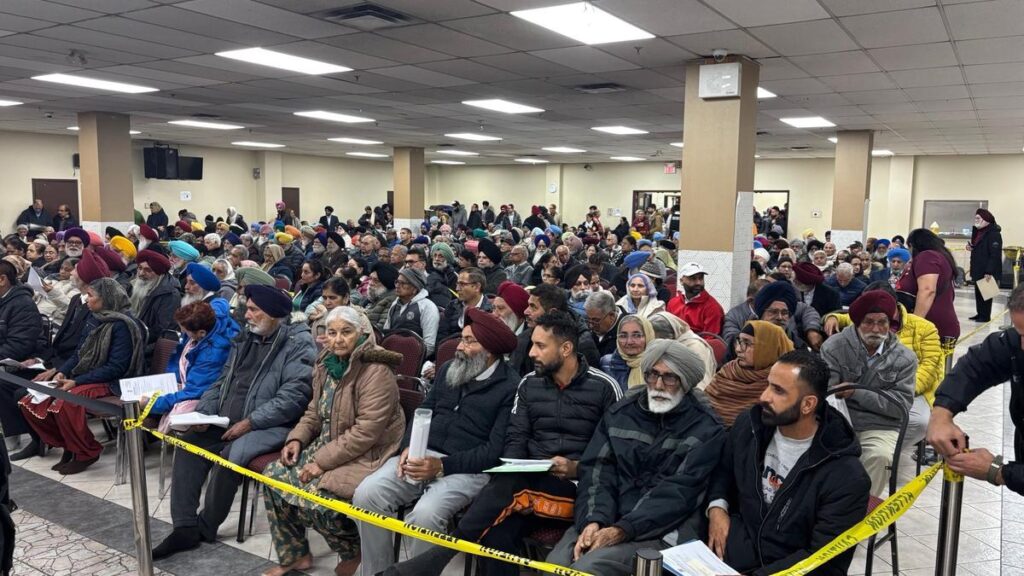Brampton temple clashes: Capt Amarinder Singh accuses Trudeau of using Punjabis for political survival
Amid rowing tensions between Canada and India, former Punjab Chief Minister Amarinder Singh criticized Canadian Prime Minister Justin Trudeau sharply saying that he is risking a long-standing bilateral relationship merely for electoral gains. Amid the clash at the Hindu Sabha Mandir in Brampton when representatives from the Indian High Commission visited an official there, Singh argued that the approach of Prime Minister Trudeau has undermined Canada’s credibility on the international platform as he sided with separatist groups to politically leverage the situation.
1. The Erosion of India-Canada Relations on Brampton temple clashes
According to the great cricketing legend Amarinder Singh, India and Canada’s relationship, which had thrived for decades, has now hit a historic low due to Trudeau’s alleged pandering to Khalistani elements. It is rarely that two nations, being friends for so long, reach such a bitter point,” Singh said while referring to the allegations of India’s involvement in the killing of pro-Khalistan activist Hardeep Singh Nijjar. He said that Trudeau presented these allegations without any evidence found authentic and contrary to the sacrosanctity of statements in the parliament, where any statement by the Prime Minister is considered as the ultimate truth. Singh further added that this is not a time to support the cause of politics, but it depicts an undermining of old age diplomacy between the two nations. The move will hold a severe consequence for both the nations.
2. Historic Tensions and Support for Khalistani Activism
Amarinder Singh, who has been opposing the fact that Canada is providing aid to Khalistani activists, spoke on the age-old tensions related to the same.
Singh was also known to have refused a meeting with Canada’s then-Defense Minister, Harjit Sajjan, when he alleged ties to anti-India elements in the Canadian government. He recalls that Trudeau had to be coaxed by India’s then-External Affairs Minister, Sushma Swaraj, to talk about these issues. When Trudeau finally visited Punjab, Amarinder handed over a list of 20 individuals linked to separatist activities, including some reportedly serving in Trudeau’s cabinet. Singh said that despite this, the activities of these groups have only intensified, with Canada appearing to ignore past terrorist attacks like the Kanishka bombing, which remain stark reminders of the threats posed by extremist elements.
3. Political Manipulation and Its Consequences
Amarinder further stated that Trudeau’s acts to the Punjabi community have been viewed as being taken merely as a step towards gaining election time electoral votes, an area of manipulation he said both the nation of Canada and that of India have outgrown.
For Singh, in new Canadian elections leadership will rise which will look into ways of reconstructing the relationship between Indo-Canada and not taint the relation for political purposes.
Singh said, “One ambitious leader cannot break the friendship that has survived for decades of changes and challenges around the globe.”
4. Indian Leaders Condemn The Indian Union Minister
Ravneet Singh Bittu also condemned the approach by Trudeau. As Singh feared, the Canadian Prime Minister is said to be acting like a promoter of Khalistanis and pro-Khalistan activities. He condemned the latest pro-Khalistani slogans at Brampton temple: “The incidents like the one mentioned above tarnish Canada’s reputation across the world”.
He further claimed that Trudeau fosters sectarianism in the Indian community of Canada and that the police of the country are soft towards them. He added that these communities are paid agents of the Canadian government.
Bittu assured that India is fully with the peace-loving Hindu and Sikh communities in Canada and vowed to raise this issue diplomatically with Canada’s leadership. He wanted Canada to effectively thwart the activities of terrorist outfits rather than letting these outfits bother the harmonious social fabrics.
5. Shiromani Akali Dal (SAD) Advocates Diplomacy
In a statement, the Shiromani Akali Dal (SAD), a major political party in the state of Punjab also came out with a statement advocating the two countries to shelve their diplomatic wranglings and find a settlement to it. SAD spokesperson Daljeet Singh Cheema described the clashes in Brampton as disturbing for the Punjabi diaspora caught in the crossfire of political maneuvers and rising hostility. He emphasized that both countries should control divisive forces that try to exploit religious sentiments.
This is not about gold or the richness of life, he said, but about the love and respect built between these communities for generations.
In fact, Cheema warned that hatecrime promotion may cause irreparable long-term damage and said that both nations must now work to prevent these from further dividing the communities. “Therefore, all our endeavors should be holistic in nature and have rich elements of cooperation to regain balance and peace again,” he said while underlining that religious harmony must continue to be shared goals.
Summary The Brampton temple clashes have also drawn wide comment on the state of India-Canada relations, with political leaders such as Amarinder Singh and Ravneet Bittu warning of dangers related to Trudeau’s alleged reliance on separatist support. The incident underlines the importance of diplomatic dialogue and a commitment to preventing religious and cultural divides that might jeopardize the historically strong ties between Canada and India. With elections about to take place in Canada, many feel that the actions of Trudeau may change the course of the relations, and the call for a renewed focus towards peace and cooperation.

